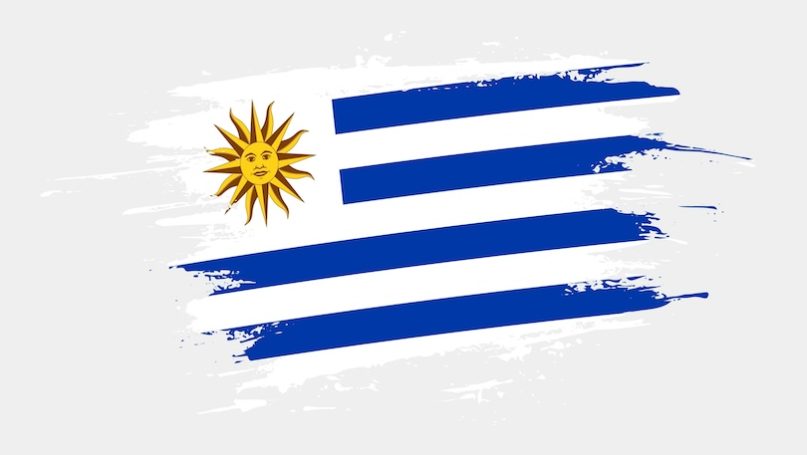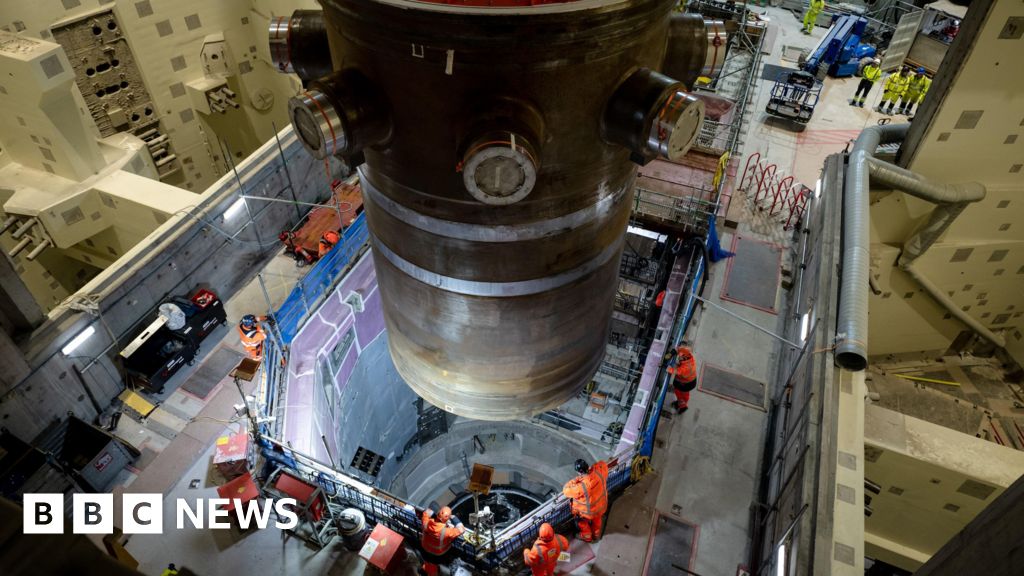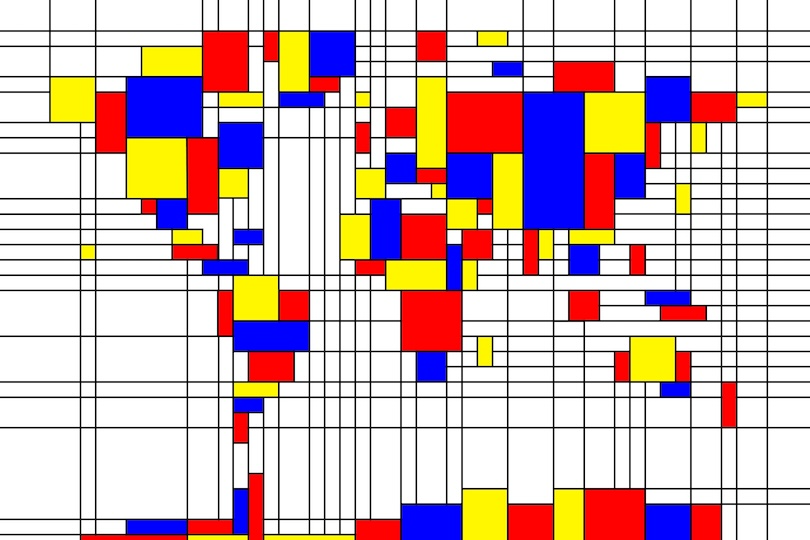
akky097/Shutterstock
Uruguay will hold general elections on 27 October. As South American politics remain turbulent, Uruguay is one of the few remaining islands of stability and progressive thinking. Nevertheless, the situation remains complex as the country has several challenges. There are three main presidential candidates to replace President Luis Lacalle Pou (2020-present): Yamandú Orsi (Broad Front or Frente Amplio); Álvaro Delgado (National Party or Partido Nacional); and Andrés Ojeda (Colorado Party or Partido Colorado). Recent polls show that Orsi has over 40% of the vote, with Delgado in second with around 20%. If no candidate achieves over 50% of the votes in the first round, the two candidates with the most votes will have a run-off on 24 November.
While the three candidates are male, both Orsi and Delgado have women running as vice presidents: Carolina Cosse, an engineer, and Valeria Ripoll, a unionist, respectively. President Lacalle represents the National Party; it is plausible that the discontent Uruguayans have towards the Lacalle presidency is affecting their decision not to vote for Delgado of the same party. “The current administration is criticized over the handling of security issues and the water crisis, which affected the capital, Montevideo, last year,” explains an analysis, adding that corruption scandals have also “eroded” the credibility of the ruling bloc. One scandal, in particular, is related to the President’s inner circle: in 2022, Alejandro Astesiano, head of the President’s security team, was arrested and sentenced to four and a half years in prison for influence peddling and revealing state secrets, among other crimes.
The almost 2.8 million Uruguayans eligible to vote will also select 30 senators, 99 deputies and vote on two referenda. The referenda reflect the main concerns of Uruguayans today. The first is public security, as one referendum will address security sector reform, specifically allowing night-time police raids on homes. The other referendum addresses social security, and it was proposed by the National Trade Union Association (Plenario Intersindical de Trabajadores – Convención Nacional de Trabajadores: PIT-CNT).
Uruguay is generally politically and socio-economically stable, with the last military junta ending almost four decades ago (1973–85). However, the country continues to have major challenges. For example, Uruguay’s reputation as an economically stable state has been questioned in recent years. In 2023, economic growth slowed to only 0.4%, an unavoidable outcome due to the recent drought and COVID-19. However, institutional issues have persisted through the years without much change. Despite a low overall poverty rate of 6%, children, teenagers, and ethnic minorities make up a significant portion of that number. Additionally, access to education has yet to catch up to Uruguay’s economic growth. Most voters are likely aware of these recent economic shortcomings and could consider them when choosing their representatives in October.
The country also continues to struggle in its fight to combat drug smuggling, particularly through the port of Montevideo. Primarily being exported to Europe, authorities have failed to contain illegal commercial activities in the city. In 2019, the U.S. DEA closed up shop in the region, despite pleas from the Lacalle Pou Administration for a return. The situation in Montevideo is reflective of a gradual crime wave in recent years, with homicides being up nearly 40% as recently as 2022. Uruguayans will doubtless continue prioritizing law and order at the ballot box this year as the situation worsens. There are also other types of rising crime and insecurity. For example, this year, there have been several incidents of violence at schools, including physical attacks against teachers. In September, the teacher’s union called for a 24-hour strike among schools in Montevideo to protest the situation.
The next President will inherit armed forces that continue to require new equipment to operate and carry out their missions properly. The Uruguayan Ministry of Defense has announced the purchase of six Embraer A-29 Super Tucano aircraft to revamp the air force’s combat capabilities; however, more is needed. There is an ongoing scandal about the purchase of two offshore patrol vessels from the Spanish shipyard Cardama for the Navy.
As for foreign policy, the next Uruguayan head of state will have to decide whether to maintain the country’s existing stance towards Venezuela, with President Lacalle Pou and his government routinely denouncing Maduro’s authoritarian rule. On 28 July, authoritarian President Nicolas Maduro “won” elections, which many governments and organizations label as neither free nor fair. The outcome prompted massive protests in Venezuela and a subsequent violent crackdown by security forces.
Uruguay is not the type of country that makes international headline news. In fact, since returning to democratic rule, elections have occurred without much fanfare. The Uruguayan consulting firm Cifra has explained “throughout [Uruguay’s] democratic history, Uruguayans do not stand out for disruptive attitudes. In neighboring countries, when [the population] gets tired of one government, they tend to elect a candidate that promises a ‘chainsaw’ [of reforms]; here, at least until now, the population does not prefer dramatic changes.” Similarly, political analyst Agustín Canzani argues, “Uruguay is a society with democratic values … there is low tolerance to autocratic alternatives, dissatisfaction with governments does not result in radical changes.”
Uruguay’s reputation as South America’s most secure state is well-earned. However, economic uncertainty and rising crime rates are challenges that cannot be ignored. The next chief executive will be tasked with maintaining a strong foreign policy to isolate Maduro’s Venezuela and the fight against crime will most likely also require increased international cooperation, which only the next president can facilitate.
Further Reading on E-International Relations
About The Author(s)
Wilder Alejandro Sánchez is president of Second Floor Strategies, a consulting firm in Washington, D.C. He is an analyst who monitors defense& security, geopolitical, trade and environmental issues across the Western Hemisphere, Eastern Europe, and Central Asia.
Caleb M. Mills is an Associate Features Editor at E-International Relations and an Associate at the South China Sea Newswire. Caleb’s work has appeared in the Lima Chronicle, Asia Times, International Policy Digest, RealClearPolitics, and Geopolitical Monitor.
Before you download your free e-book, please consider donating to support open access publishing.
E-IR is an independent non-profit publisher run by an all volunteer team. Your donations allow us to invest in new open access titles and pay our bandwidth bills to ensure we keep our existing titles free to view. Any amount, in any currency, is appreciated. Many thanks!
Donations are voluntary and not required to download the e-book - your link to download is below.

 Movie
Movie 2 months ago
75
2 months ago
75 






![Presidents Day Weekend Car Sales [2021 Edition] Presidents Day Weekend Car Sales [2021 Edition]](https://www.findthebestcarprice.com/wp-content/uploads/Presidents-Day-Weekend-car-sales.jpg)



 English (United States)
English (United States)